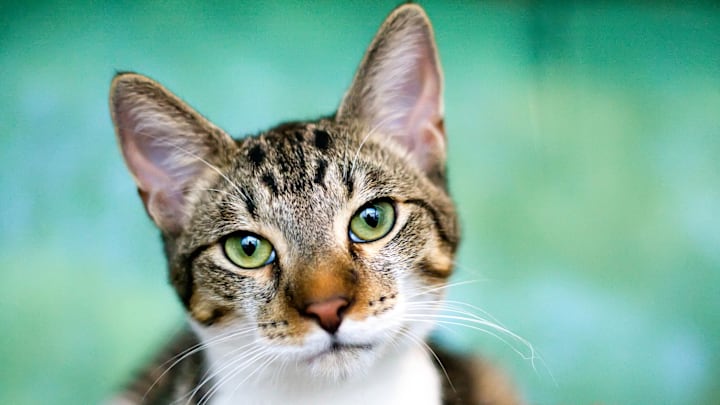Tourists visiting a popular and historic fortress in Old San Juan, Puerto Rico, are often greeted by locals. In this case, cats. A lot of them. Known as cobblestone or colonial cats, the 200-plus strays have settled in and around the site and have become part of the community. But not for much longer.
According to the Associated Press, the National Park Service has initiated a plan to remove the cats from the San Juan National Historic Site in the capital. The felines occupy a 75-acre expanse on the site, which is home to a 16th-century seaside fortress known as El Morro. It’s possible some of the cats are descendants of earlier Colonial-era inhabitants.
The NPS is taking the step in an effort to reduce the potential for disease transmission as well as an attempt to beautify the area. Cat urine and feces is incongruous with the overall atmosphere at El Morro, the Service argues. The agency also believes food left out for the animals is attracting vermin.

In an exploratory paper prepared by the National Institutes of Health (NIH), it was noted that “overpopulation of stray cats in urban areas represents a potential risk for humans, as stray cats may carry diseases, such as toxoplasmosis, and virus such as rabies, the feline immunodeficiency, and the feline leukemia.” The paper went on to note that some strays in Old San Juan exhibited “very poor physical conditions, including skin problems, scars, underweight, and blindness.”
Naturally, not everyone agrees that the cats should be relocated. A public hearing hosted by the NPS in 2022 was said to have devolved into shouting, with most in attendance in support of keeping the cats. “These cats are unique to San Juan,” one advocate, Danna Wakefield, told the AP. “Me and many other people love that walk because of the cats. Otherwise, it would be a very boring walk.”
“This is like Disney World for cats,” cat supporter Alfonso Ocasio said in 2022. “I don’t know how these people dare face the world with their proposal.”
The NPS plans to select an animal welfare organization to corral the cats over a six-month period, with the goal of placing the cats in shelters and homes. If the group fails to do so, a wildlife removal business will be hired. Cat fanciers argue the window isn’t enough time.
“Anyone who has worked with cats knows that is impossible,” Ana Maria Salicrup of the nonprofit Save a Gato said. “They are setting us up for failure.”
[h/t Associated Press]
